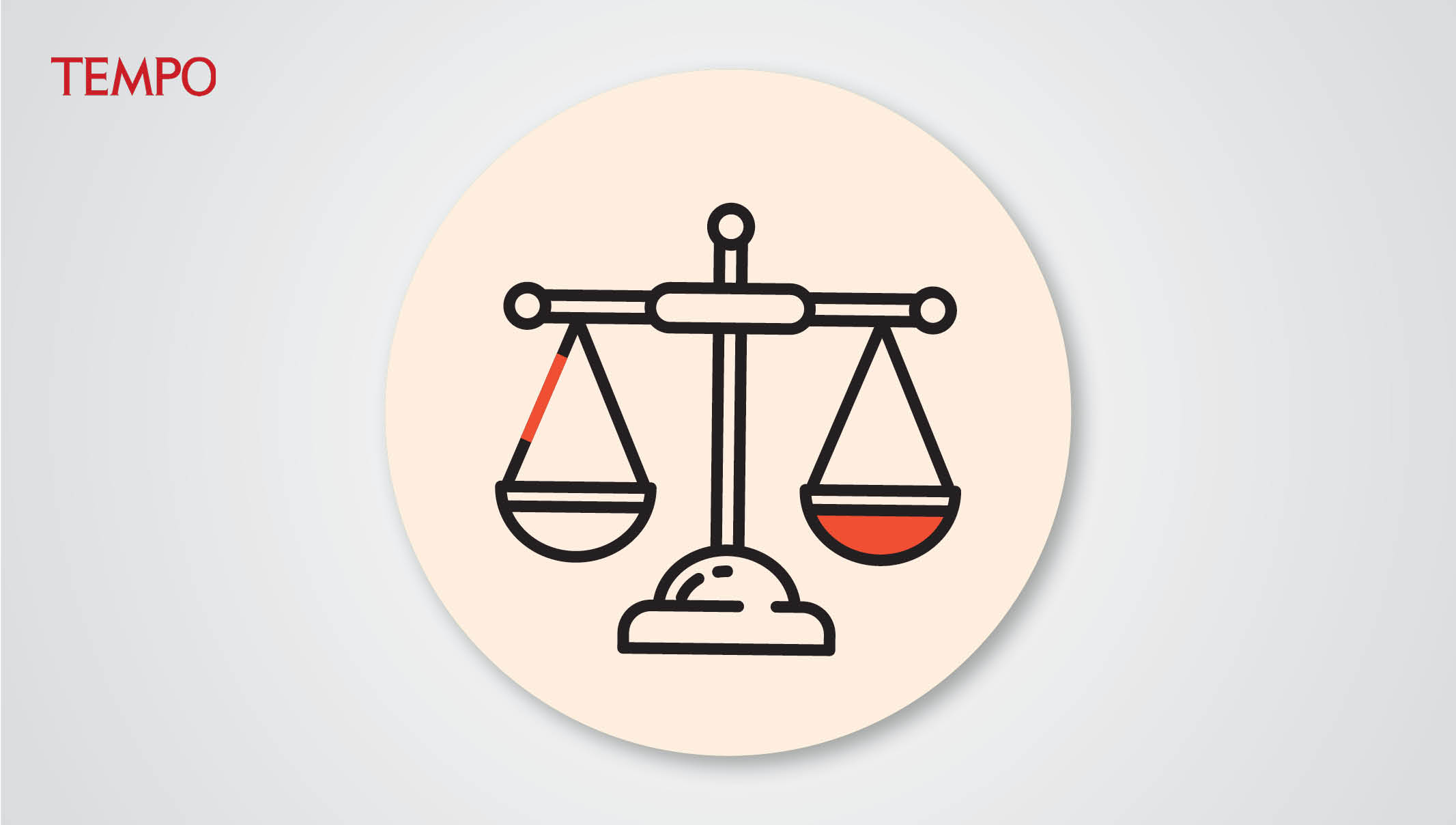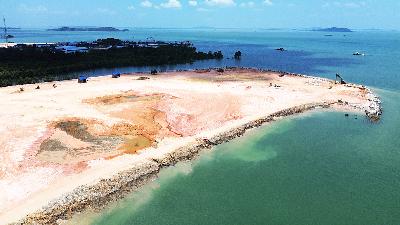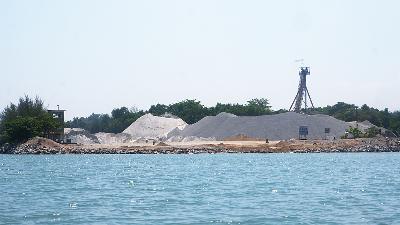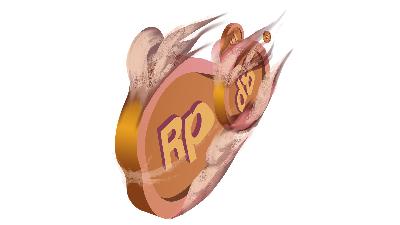Forgiving the Sins of Illegal Mining and Plantations
Monday, April 1, 2024
The legalization of illegal mining and oil palm plantations in forest areas is rife with irregularities. This is plundering of natural resources using the Job Creation Law.
arsip tempo : 174488250352.

IT is becoming increasingly apparent that from the point of view of environmental conservation, the Job Creation Law is nothing more than a recipe for the structural and systemic plundering of natural resources. As well as being a serious threat to the environment, the controversial provisions in this omnibus law also provide an opportunity for collusion between state officials and businesspeople.
Articles 110A and 110B are one example. The government claims that these two articles are a solution to the complex problems of spatial management and permits for business activities in forest areas. However, from the outset, because they prioritize administrative sanctions rather than legal measures, these articles have become documents to legalize or forgive the actions of plantation and mining companies that have operated illegally for years inside forest areas.
Now the bad smell behind the implementation of these administrative sanctions in the mining sector is becoming stronger. The government has identified 500 mining companies with production areas totaling 265,000 hectares partly or entirely in forest areas that do not have forest area utilization permits (IPPKH). As of February, at least 63 companies had paid administrative fines totaling Rp392.04 billion. Some of them have also been rewarded with the issuing of borrow-to-use permits, so they can continue mining.
And before the process is complete, the legalization of illegal mining in forest areas has begun to cause many problems. This is due to the fact that the government task force headed by the Coordinating Minister for Maritime Affairs and Investment is never transparent, either in the way that fines are determined or in the imposition of sanctions on corporations. As a result, the public has no way of knowing whether the payment of fines by mining companies to the state is fair recompense for the environmental destruction they have caused.
The secretive way the law is applied is very suspicious given the close relationship between the government and some tycoons. There is an aroma of collusion. There are indications that at least 11 corporations have paid fines that were too small. Leaked documents obtained by Tempo show that these companies paid fines based on mining areas without IPPKHs totaling 791 hectares, but a spatial analysis by Auriga Nusantara shows that this area was actually more than 1,723 hectares.
The poor management in the legalizing of illegal mining in forest areas is one problem. At the same time, the government is also speeding up the legalization of illegal oil palm plantations in forest areas, the extent of which is still unclear. Covering a much larger area of around 3.37 million hectares, the non-transparent legalization of illegal oil palm plantations could lead to massive collusion and corruption.
If nothing is done to stop it, the reckless implementation of the Job Creation Law will become a bad legacy of President Joko Widodo’s administration. And the aftereffects could trigger natural disasters everywhere. The next administration, together with the legislature, should revoke this omnibus law.











